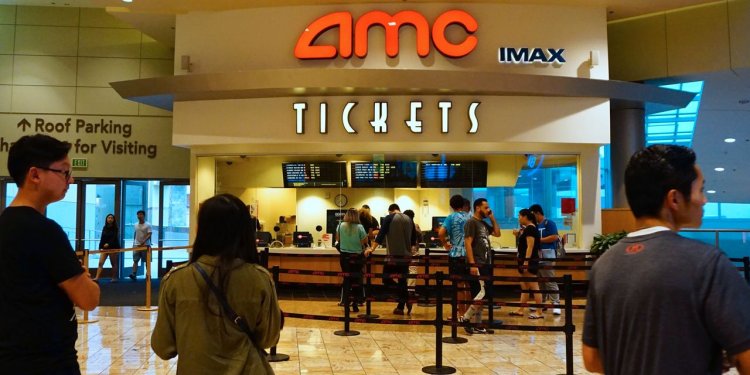AMC Entertainment Shares Soar After Judge Blocks Equity Transactions
Many meme investors who own AMC’s common shares opposed the transactions out of concerns that their shares could be diluted AMC’s proposed transactions would involve a conversion of preferred equity units into common shares. Photo: frederic j. brown/Agence France-Presse/Getty Images By Alexander Gladstone Updated July 21, 2023 7:05 pm ET | WSJ Pro AMC Entertainment shares soared 70% after-hours Friday after a judge rejected a proposed court settlement that would have cleared the way for the movie-theater giant to complete a set of equity transactions enabling it to issue substantially more shares. Delaware Chancery Court Vice Chancellor Morgan Zurn said she couldn’t approve the settlement as presented. AMC’s proposed transactions wo


AMC’s proposed transactions would involve a conversion of preferred equity units into common shares.
Photo: frederic j. brown/Agence France-Presse/Getty Images
AMC Entertainment shares soared 70% after-hours Friday after a judge rejected a proposed court settlement that would have cleared the way for the movie-theater giant to complete a set of equity transactions enabling it to issue substantially more shares.
Delaware Chancery Court Vice Chancellor Morgan Zurn said she couldn’t approve the settlement as presented.
AMC’s proposed transactions would involve a conversion of its preferred equity units, known as Apes, into common shares, as well as a 10-for-1 reverse stock split. AMC has said the transactions would let it raise money by selling additional shares, and that it might need the liquidity buffer to avoid bankruptcy as it struggles with a heavy debt load amid uncertain cinema industry conditions.
However, many meme investors who own AMC’s common shares oppose the transactions out of concerns that their shares could be diluted.
Certain shareholders sued AMC to prevent the transactions from being consummated, though they later reached a settlement with the company that would provide an extra common share for every 7.5 shares owned. But other investors opposed both the transactions and the settlement, and the Delaware Chancery Court received more than 2,800 objections to it in advance of a two-day trial that took place last month.
AMC won’t be able to consummate its transactions until the litigation involving the matter is resolved. Ape units fell nearly 17% after-hours Friday.
AMC didn’t immediately respond to a request for comment.
As it came close to running out of new common shares to sell in 2021, AMC sought authorization from its shareholder base to issue more shares but failed to receive sufficient shareholder support.
AMC last year began issuing the preferred Ape units, which came with fewer restrictions governing how many could be sold. The company in 2022 issued a special dividend of one Ape unit for each common share, and then began selling additional Ape units through at-the-market offerings and a direct sale to hedge fund Antara Capital, bringing the total number of Ape units to close to one billion. AMC has about 517 million common shares.
The company then rolled out its proposals for the Ape-to-common-share conversion and 10-for-one reverse stock split, with shareholders approving the plan in March.
Since Ape units have always traded at a lower price than common shares, holders of Ape units had an incentive to vote for the conversion. Shareholders who oppose the transactions have argued that creating the Ape units and giving them equal voting rights to common shares amounted to vote-rigging or manipulation.
They also complained about a “mirrored voting” provision, in which even though not all Ape unit holders voted, the percentage of those who did vote in favor of the proposals was applied to the entire class. If it wasn’t for the mirrored voting provision, combined with a promise from Antara Capital to vote in favor, the proposals wouldn’t have passed, Judge Zurn said.
The proposed settlement, which provided common shareholders with additional shares valued at about $130 million, aimed to provide compensation for the alleged harm they suffered as a result of the creation of the Ape units and the influence that the issuance had on the shareholder vote.
However, Judge Zurn said in her ruling that the settlement can’t be approved because issuing the additional common shares would come at the expense of holders of Ape units. The plaintiffs who support the settlement represent the common shareholder, but don’t represent the Ape unit holders. As such, the plaintiffs aren’t in the position to release claims held by the Ape holders.
“Awarding more shares to common stockholders necessarily comes at the expense of preferred units; the settlement consideration harms preferred unitholders,” Judge Zurn wrote.
Write to Alexander Gladstone at [email protected]
What's Your Reaction?













